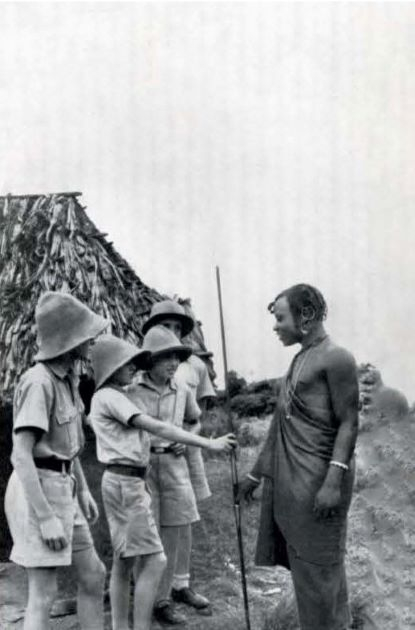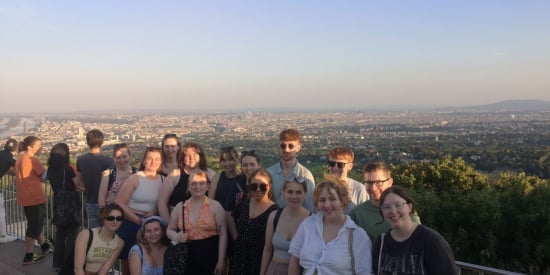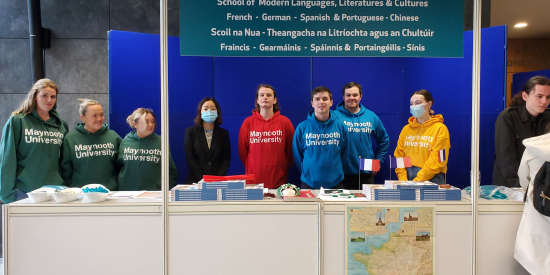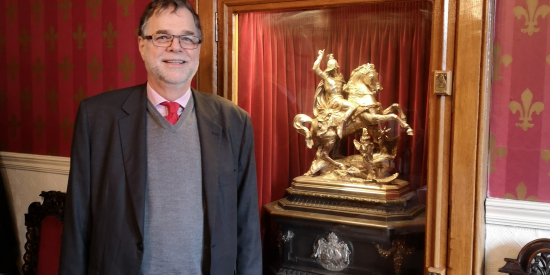Preparing for the Leaving Cert German Written Exam (Workshop):
The next workshop will take place on May 7th 2025, 15.00 - 17.30.
Please email [email protected] if you are interested in attending.

__________________________________________________________________________________________________
Florian Krobb „Afrikas Zukunft“
Jugend- und Abenteuerliteratur in
Deutschlands ‚afrikanischem Jahrhundert‘
(ca. 1840-1940)

„Afrikas Zukunft“: Jugend- und Abenteuerliteratur in Deutschlands ‚Afrikanischem Jahrhundert‘. Würzburg: Königshausen & Neumann, 2021. 275 pages, 49.80 Euro. ISBN 978-3-8260-7399-1.
The book investigates German adventure writing for young readers during, what the author calls, Germany’s African Century (1840s – early 1940s), a time when Africa held a prominent place in German culture’s global imagination and Africa became the most popular location in fiction and non-fiction for writings set overseas. The period covers the time of transition from ‘scientific’ exploratory travel writing to adventure narratives and from Geography to instructional and exciting reading material for future colonialists. The end of this era is marked by the abrupt and complete cessation of all writing on Africa during the early stages of World War II.
Krobb discusses prominent authors in the field such as Karl May, Carl Falkenhorst and Friedrich Wilhelm Mader; themes like slavery, colonial wars, treasure hunts and the link between stories of big game hunting and nature conservation. He analyses the historical role of African adventure writing and reportage in the pre-colonial era, during the existence of Germany’s African Empire 1884-1918, and in the revanchist climate of the Weimar years and the early Nazi period. The sheer scale and variety of publications in the field (including, amongst others, adventurous biographies of the pioneers of exploration and colonisation, of soldiers active in the Second Boer War, German colonial wars and in the campaigns fought in Africa during World War I; including also narratives of battling adverse conditions, combatting enemies from slave traders to other exploiters of nature and indigenous populations) provides a measure of the intensity of the penetration of the field, facilitates an understanding of German attempts of defining a unique position towards ‘Africa’ as predestined rulers and guardians of a continent that requires leadership. The study also illustrates the collusion between ‘science’ (Geography, Ethnography, even Geology) and conquest in popular discourse, and thus contributes to a better understanding of the enduring power of a specifically German colonial mentality.








